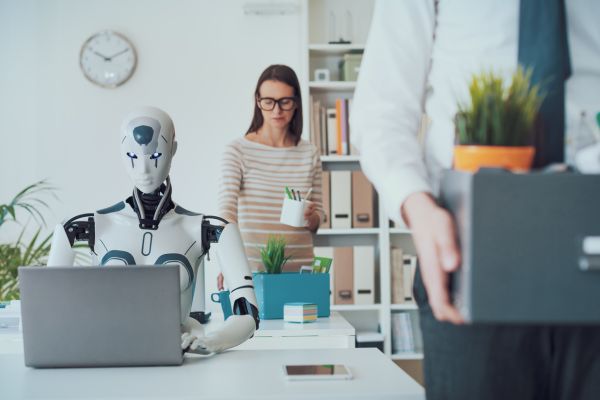Exploring the Profound Impact of AI on the Global Economy
Artificial Intelligence (AI) is no longer a futuristic concept confined to science fiction or tech labs. It has become a transformative force shaping the very foundations of the global economy. From revolutionizing industries to redefining workforce dynamics, the impact of AI on the global economy is both profound and multifaceted. As nations race to harness its potential, AI is altering economic paradigms, sparking innovation, and raising pivotal questions about equity, employment, and sustainability.
The Rise of AI as an Economic Catalyst
In recent years, AI has emerged as a powerful economic catalyst, influencing productivity, efficiency, and innovation across sectors. Businesses worldwide are leveraging AI technologies to automate operations, optimize logistics, personalize customer experiences, and enhance decision-making. These advancements not only reduce costs but also open new revenue streams and market opportunities.
The impact of AI on the global economy is evident in the way companies—ranging from tech giants to small startups—are integrating machine learning, natural language processing, and predictive analytics into their core operations. The acceleration of digital transformation has led to a surge in AI-driven solutions, positioning AI as a central pillar of modern economic growth.
Shifting Workforce Dynamics and Labor Markets
One of the most significant and debated effects of AI is its influence on employment. While AI has the potential to displace certain routine and repetitive jobs, it also creates new roles that require advanced skills in data science, robotics, AI ethics, and algorithmic design. The transition is not merely a replacement of human labor but a redefinition of it.
The impact of AI on the global economy extends to labor markets, where demand for digital and cognitive skills is outpacing traditional skill sets. This shift is prompting governments, educators, and businesses to invest heavily in upskilling and reskilling initiatives to prepare the workforce for AI-driven economies. Countries that adapt swiftly to these changes are more likely to remain competitive in the global marketplace.
Economic Inequality and the Digital Divide
As AI technologies proliferate, a concerning consequence is the widening gap between developed and developing nations. Wealthier countries with robust technological infrastructures are better positioned to adopt and benefit from AI, while less developed regions may struggle to keep pace. This digital divide threatens to deepen existing economic inequalities.
Moreover, within nations, there is a risk that AI could exacerbate income disparities. High-skilled professionals and businesses that embrace AI may see disproportionate gains, while those without access to the necessary tools or training could fall further behind. The impact of AI on the global economy thus includes a critical dimension of inclusivity and equitable growth.
AI-Driven Innovation Across Industries
The influence of AI spans a wide array of industries, each witnessing unique transformations. In healthcare, AI enables early diagnosis, personalized medicine, and efficient hospital management. The financial sector benefits from fraud detection, algorithmic trading, and personalized banking experiences. Manufacturing sees increased precision and reduced downtime through predictive maintenance.
In agriculture, AI supports yield optimization and sustainable farming practices. Retailers utilize AI for inventory management and targeted marketing, while the transportation industry is exploring autonomous vehicles and route optimization. Across these fields, the impact of AI on the global economy manifests in increased productivity, cost savings, and enhanced consumer satisfaction.
Regulatory Challenges and Ethical Considerations
Despite the vast potential of AI, its rapid advancement raises complex regulatory and ethical issues. Governments worldwide are grappling with how to ensure the responsible use of AI without stifling innovation. Concerns surrounding data privacy, algorithmic bias, and accountability continue to grow.
The impact of AI on the global economy is inseparable from these governance challenges. A lack of standardized regulations can lead to uneven playing fields and exploitation, while thoughtful, globally coordinated policies can help ensure that AI development aligns with human values and social good. Striking this balance is essential for fostering trust and long-term sustainability in the AI economy.
AI and the Future of Global Trade
Artificial Intelligence is also reshaping global trade by enabling smarter supply chains, enhancing logistics, and reducing transaction costs. Companies can now predict demand trends, manage inventories in real-time, and respond swiftly to disruptions. These capabilities make international trade more agile and resilient.
Furthermore, AI contributes to the expansion of digital trade, where data flows and digital services become key export commodities. As digital platforms gain prominence, the impact of AI on the global economy includes the redefinition of trade boundaries and the emergence of new economic alliances centered on technological prowess rather than geography.
The Role of AI in Climate and Sustainability Efforts
Another crucial aspect of AI’s economic influence lies in its potential to support climate action and sustainable development. AI can help monitor environmental changes, optimize energy consumption, and develop smart infrastructure. By enabling data-driven decision-making, AI becomes a vital tool in addressing global challenges such as climate change and resource scarcity.
Integrating AI into sustainability strategies can also create green jobs and stimulate innovation in clean technologies. Thus, the impact of AI on the global economy is not limited to profit and productivity—it also encompasses planetary health and intergenerational responsibility.
Global AI Investment and Geopolitical Competition
Nations are increasingly investing in AI research and infrastructure as part of their strategic economic agendas. Countries like the United States, China, and members of the European Union are competing to lead the AI revolution, recognizing its significance for economic dominance and national security.
This global competition has led to an arms race of sorts, with substantial funding allocated to AI startups, academic research, and public-private partnerships. The impact of AI on the global economy is thus intertwined with geopolitics, influencing trade policies, defense strategies, and international diplomacy.
Conclusion: Navigating the AI-Driven Economic Future
As AI continues to evolve, its influence on the global economy will only intensify. From transforming industries and reshaping labor markets to addressing climate challenges and redefining global trade, the impact of AI on the global economy is extensive and dynamic.
To harness the full potential of AI while minimizing its risks, a collaborative approach is essential. Policymakers, businesses, educators, and civil society must work together to ensure that AI-driven economic growth is inclusive, ethical, and sustainable. The future of the global economy is being written today by the algorithms and innovations of AI—how we guide that future will define the prosperity and equity of generations to come.



